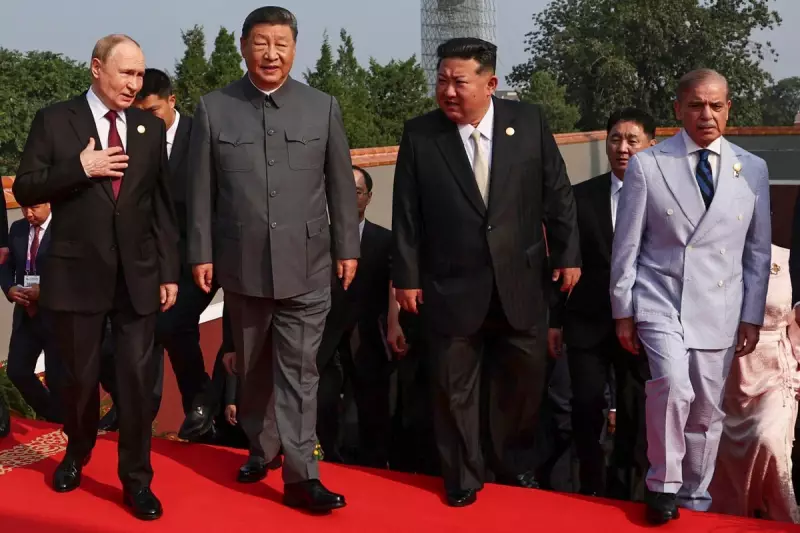
In a move that dramatically reshapes the geopolitical landscape, Vladimir Putin and Kim Jong-un have solidified a formidable new alliance, signing a comprehensive mutual defence pact during the Russian President's highly symbolic visit to Pyongyang.
The agreement, hailed as a "breakthrough" by Putin himself, marks the deepest connection between Moscow and Pyongyang since the Cold War and represents a direct challenge to Western influence, particularly that of the United States and its allies.
A New Strategic Partnership
The pact obliges both nations to provide immediate military assistance to the other if attacked—a clause with potentially far-reaching consequences for global security dynamics. This revival of a Cold War-era commitment signals a deliberate and aggressive pivot away from the US-led international order.
"The comprehensive partnership agreement signed today provides, among other things, for mutual assistance in the event of aggression against one of the parties to this agreement," Putin declared, sending a clear message to Washington and its partners.
Rewriting the Rules of Engagement
This strategic partnership fundamentally alters the calculus for Western powers. The alliance potentially provides North Korea with enhanced political cover and technological support for its nuclear and ballistic missile programmes, while granting Russia access to North Korean munitions to sustain its war effort in Ukraine.
In a stark warning to the West, Putin explicitly stated he reserved the right to arm North Korea in response to NATO allies allowing Ukraine to use Western-supplied weapons to strike inside Russian territory. "I don't rule it out," he stated, escalating the rhetoric of confrontation.
The Western Response
The pact has triggered immediate alarm bells in Western capitals. A US State Department spokesperson condemned the deepening ties, warning that the partnership "should be of great concern to anyone interested in maintaining peace and stability on the Korean Peninsula."
White House national security spokesman John Kirby called the developing relationship "incredibly concerning," highlighting fears that North Korean ballistic missiles are already killing Ukrainian citizens as they are used by Russian forces.
A Message to the World
Beyond the military implications, Putin's red-carpet reception in Pyongyang—his first visit since 2000—serves as a powerful piece of political theatre. It demonstrates his ability to forge alliances outside the Western sphere of influence despite international isolation efforts.
The summit underscores a emerging new world order where US adversaries are increasingly coordinating their efforts, sharing resources, and presenting a united front against what they perceive as American hegemony.
As both leaders hailed a new era of cooperation, the international community is left to grapple with the consequences of this strengthened axis, which promises to test global diplomacy and security architectures for years to come.





